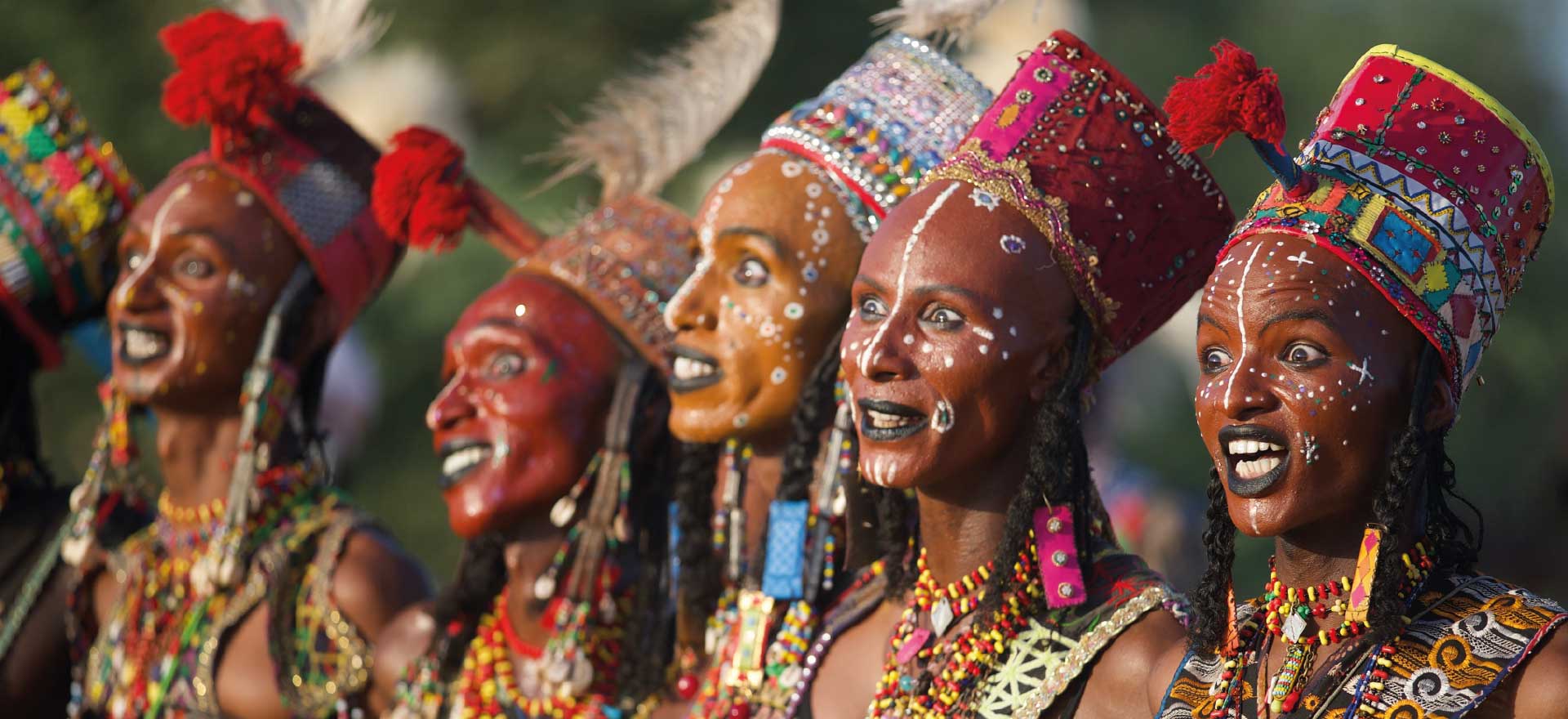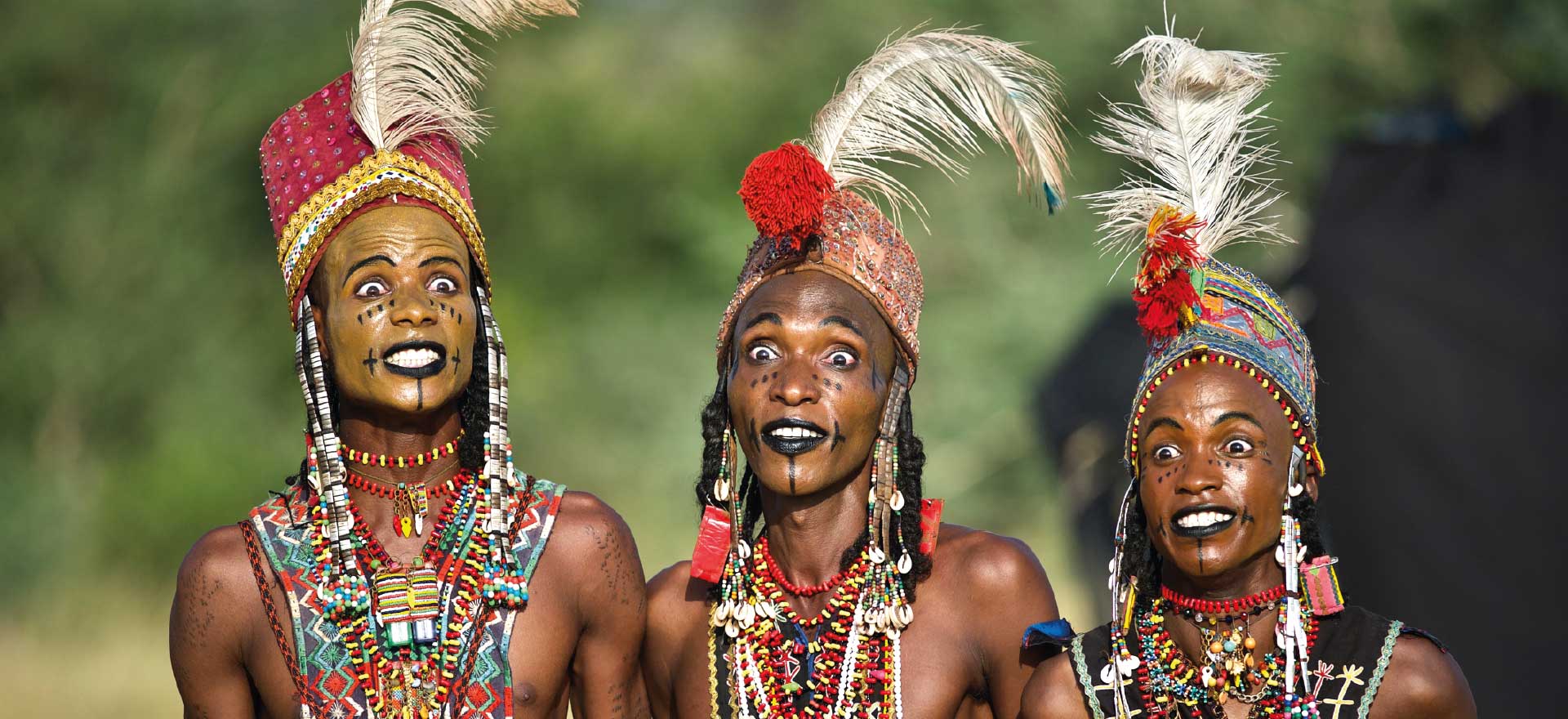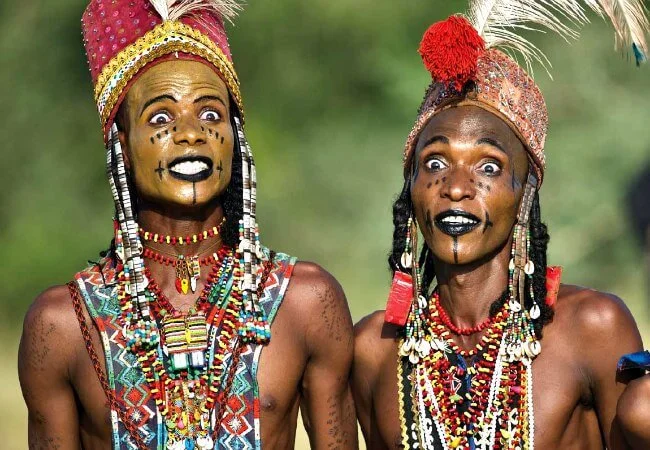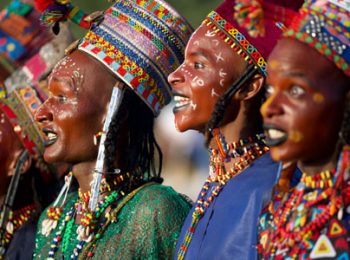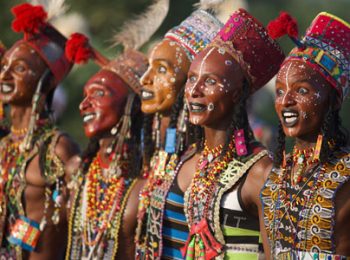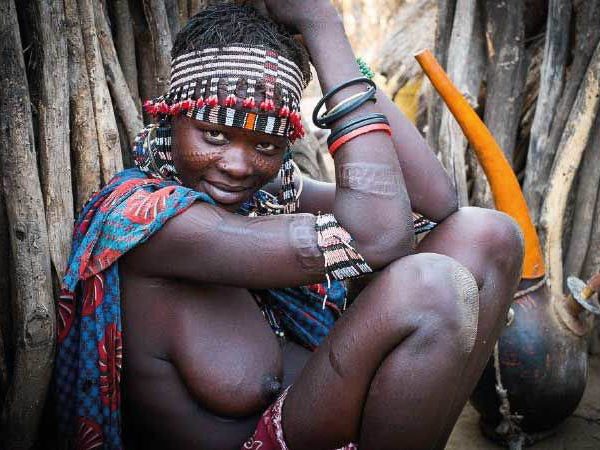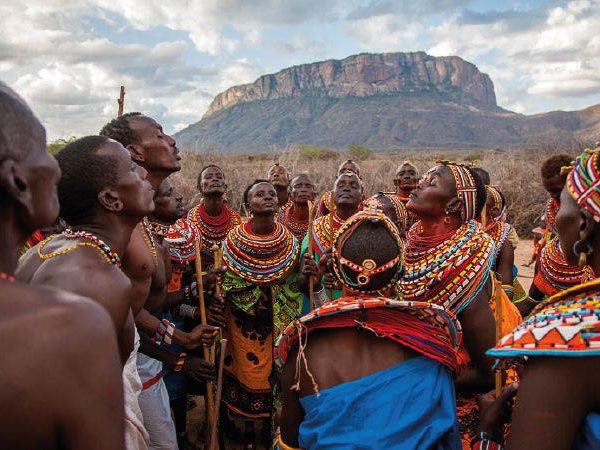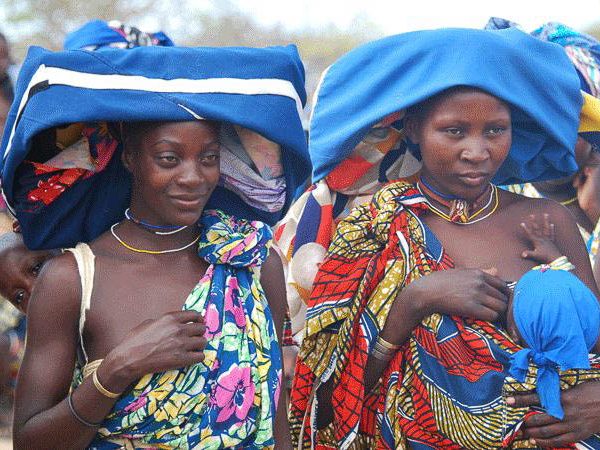The Gerewol Festival
Each year the semi-nomadic Wodaabe people gather for a week of incredible celebrations known as the Gerewol. This colourful festival is one of Africa’s most spectacular and few westerners are privileged to see it. However, we have built up excellent local contacts over the years, which means we are able to take you to this remote part of Chad to stay with these deeply traditional people. We join them as they congregate for feasting, racing, dancing and finding lovers.
The Gerewol festival is renowned for the way in which young Wodaabe men decorate themselves. Donning make-up and jewellery they ‘display’ to young women, in search of a partner either for life, or something less ‘permanent’!
Camping in the Sahel, we stay with the Wodaabe for several days, gaining more than just a fleeting glimpse of their lives. We immerse ourselves in a culture that lives very much outside of mainstream society. The Wodaabe adhere to a complex set of traditions that stretch back centuries and across borders, but are in danger of becoming lost in the future. This is a rare opportunity to meet these unique people for a celebration of their culture that will simply take your breath away.
Of all our Chad tours, the Gerewol Festival is the most exciting for those who are fascinated in the varied ethnography of Africa. It’s an absolute delight for photographers as this is essentially an elaborate and archaic beauty contest. The Wodaabe are keen to show themselves off to visitors! Many people have heard of the Gerewol Festival of Niger, immortalised by Michael Palin in his Sahara series. However, almost no tourists venture this far into Chad and we can expect to have a very intimate experience.
We’ve been running trips to the Gerewol since 2014, and have excellent connections with the local people here. Because the actual start date of the festival can be slightly fluid, we spend more time here to be sure of being able to experience as much as possible; you’re not visiting a small number of Wodaabe who have been asked to show off their customs at a fixed time and place to a group of tourists in return for payment but will be experiencing a truly authentic cultural experience, deeply meaningful for the attendees and an important event in the Wodaabe social calendar. All too often local customs can be commodified for the sake of the tourism industry; we take our travellers to a genuine cultural celebration held for the Wodaabe themselves, with us as privileged observers.
See our Gerewol Festival and Ennedi Mountains small group tour if you would like to combine colourful tribal life with the splendour of the Sahara desert. Also, check out our Gerewol in photos blog.
Africa is known for its festivals, but few – if any – can rival the Gerewol.

